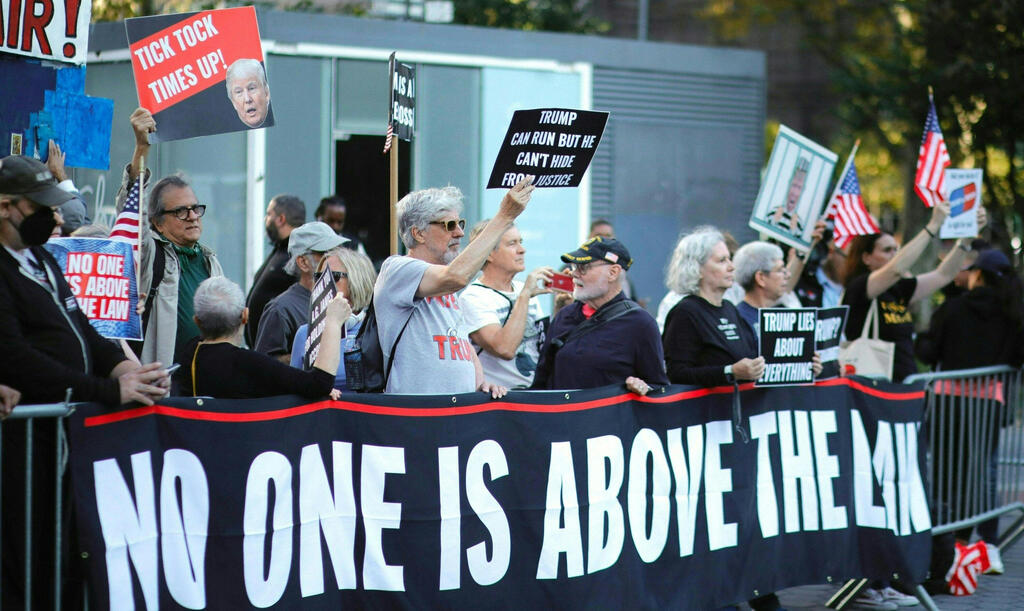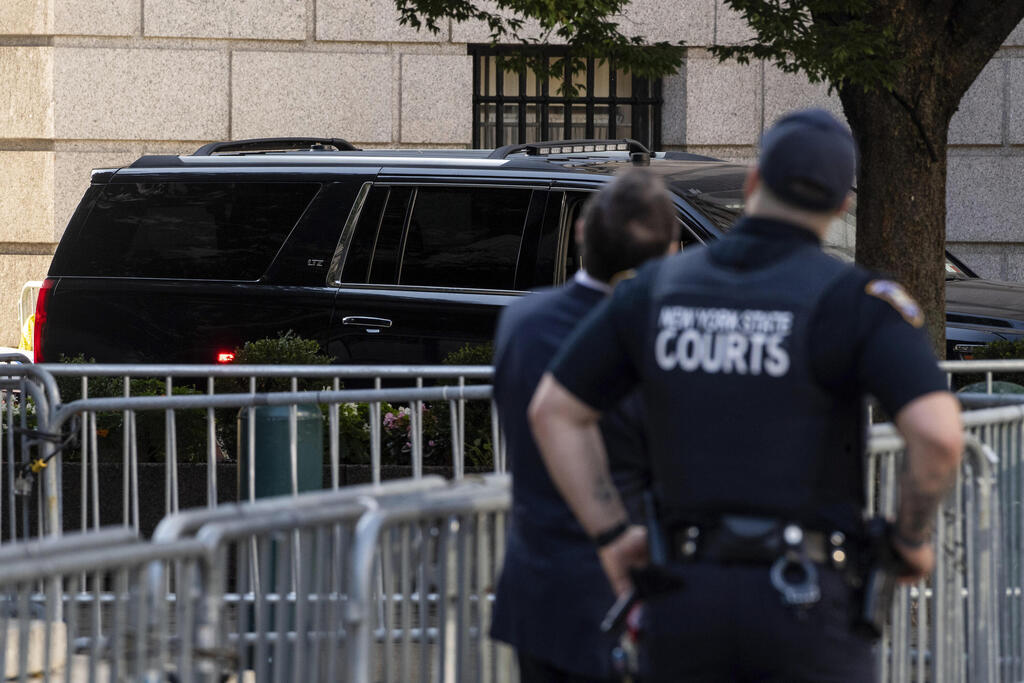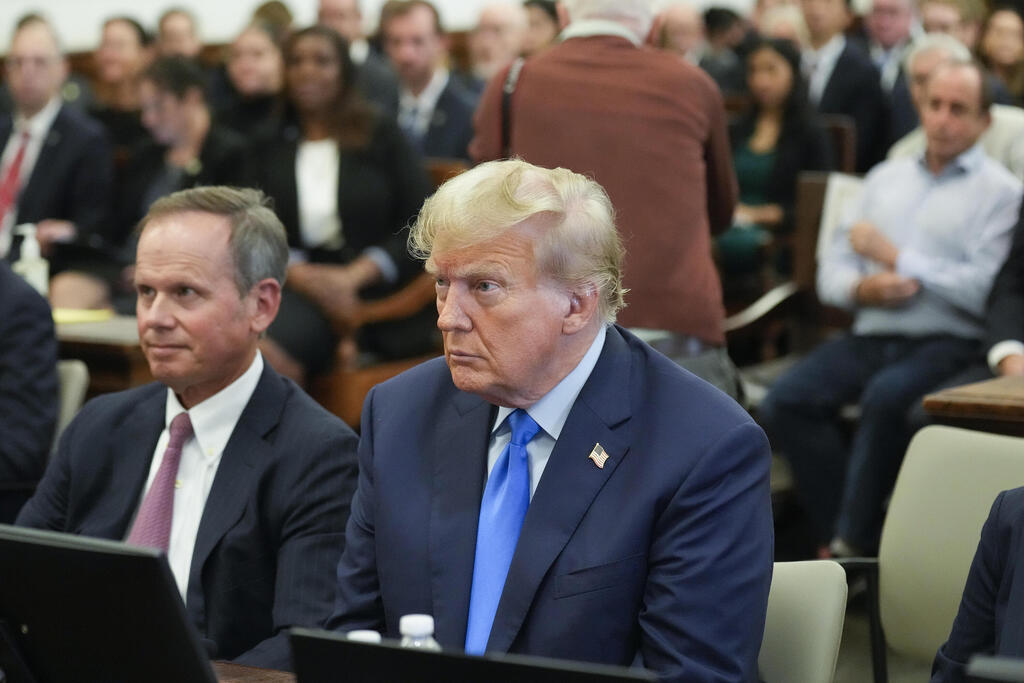A civil fraud trial that could deal a major blow to Donald Trump's real estate empire began on Monday, with a New York state lawyer accusing the former president of generating more than $1 billion by lying, and Trump blasting the case as a "scam."
More stories:
The trial in a downtown Manhattan courtroom case concerns accusations by state Attorney General Letitia James that Trump inflated his assets and his own net worth from 2011 to 2021 to obtain favorable bank loans and lower insurance premiums.
5 View gallery
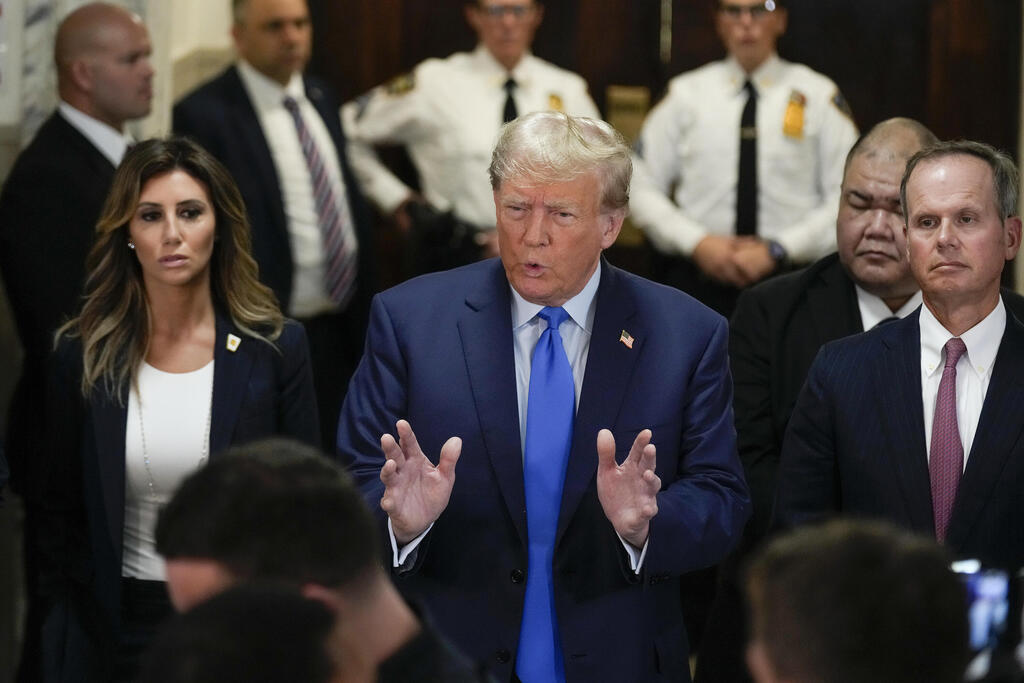

Donald Trump in New York court for hearing on fraud charges
(Photo: AP Photo/Seth Wenig)
James is seeking at least $250 million in fines, a permanent ban against Trump and his sons Donald Jr and Eric from running businesses in New York and a five-year commercial real estate ban against Trump and the Trump Organization.
Trump looked on with his arms crossed. Kevin Wallace, a lawyer in James' office, called Trump "materially inaccurate" in describing his finances to banks and insurers.
"This isn't business as usual, and this isn't how sophisticated parties deal with each other," Wallace said in his opening statement. "These are not victimless crimes."
Christopher Kise, a lawyer for Trump, countered in his opening statement that the financials for Trump and the Trump organization were entirely legal.
"It is one of the most highly successful brands in the world, and he has made a fortune literally being right about real estate investments," Kise said. "There was no intent to defraud, there was no illegality, there was no default, there was no breach, there was no reliance from the banks, there were no unjust profits, and there were no victims."
Trump holds a commanding lead over rivals for the 2024 Republican presidential nomination.
He wore a dark blue suit, a brighter blue tie and an American flag pin on his lapel, and told reporters before entering the courtroom that the case was a "scam," a "sham," and "a continuation of the single greatest witch hunt of all time.
"We have a great company. I built a great company. It's tremendous," Trump said. "It's got some of the greatest real estate assets in the world. And now I have to go in before a rogue judge."
James said her office was ready to prove its case. "The law is both powerful and fragile," she said before entering the courtroom. "No matter how much money you think you may have, no one is above the law."
Many legal woes
Trump's trial is overseen by Justice Arthur Engoron, who will hear evidence without a jury. It largely concerns penalties that Trump, his adult sons and 10 of his companies must face after Engoron last week found them liable for fraud.
Before opening arguments, Engoron described himself as a generalist on the law. "One thing I know a lot about is the definition of fraud," he said.
In his Sept. 26 decision, Engoron described in scathing terms how the defendants made up valuations. That included Trump calculating the value of his apartment in Trump Tower as if it were three times its actual size, and listing his Mar-a-Lago estate as being worth up to $739 million though deed restrictions capped it at $28 million.
Engoron's decision also covers several other properties including Trump's family estate in Westchester County, New York, and various office buildings and golf clubs.
The judge canceled business certificates for companies controlling pillars of Trump's empire, and said he would appoint receivers to oversee their dissolution. Trump responded to the decision by calling Engoron "deranged."
Wallace played an excerpt from a deposition where Michael Cohen, who had been Trump's personal lawyer and fixer but has since turned against his former boss, said the goal was "to attain the number that Mr. Trump wanted."
Kise countered that just because people disagree about valuations does not mean one valuation must be fraudulent.
He also said Trump's banks and insurers knew his valuations were estimates. "They are not designed to be absolutes," he said. The trial is scheduled to run through early December.
More than 150 people including Cohen could testify, though much of the trial may be a battle of experts opining on financial documents.
5 View gallery
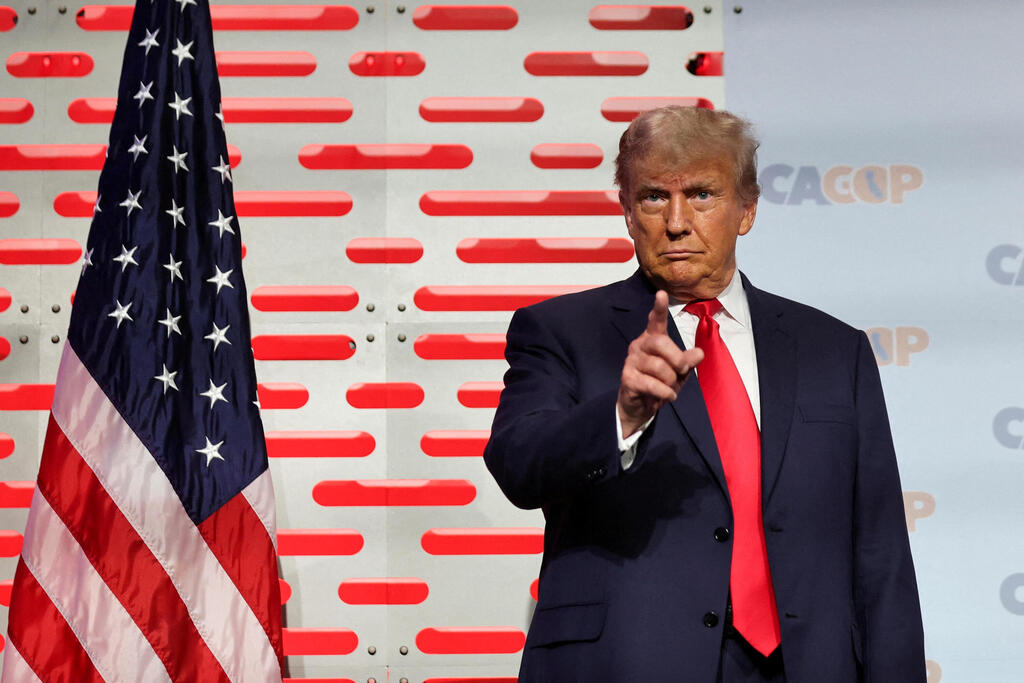

Donald Trump gives speech at GOP convention in Anaheim, California
(Photo: REUTERS/Mike Blake)
Trump also faces several other legal headaches, which have been a financial drain, and made him the first sitting or former U.S. president to be criminally charged.
He has been criminally charged in Washington over his efforts to undo his loss in the 2020 presidential election, in Georgia over moves to reverse election results there, in Florida over his handling of classified documents upon leaving office, and in New York over hush money payments to a porn star. Trump has denied all wrongdoing and pleaded not guilty.


